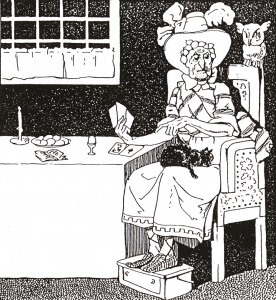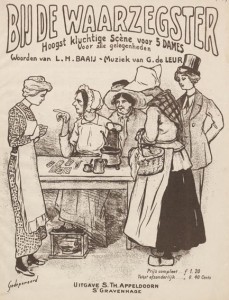Irregular Healers
One of the possible projects to engage in after my witchcraft dissertation Termen van toverij (1990), was a further exploration of all the different sorts of healers operating in the Netherlands. Some of them had already been encountered as “cunning folk”, mostly unwitchment experts, but not all of them had made that his or her sole trade. Others refrained from giving advice in cases of witchcraft. As the research was widened from one province to the entire Netherlands, it was decided to narrow the time span to the nineteenth and early twentieth century.
The anthropological approach to medical history favours an engagement with constructionism and the inclusion of the researcher into a critical assessment of studies about health, healing and healers in the past. It looks beyond offical medicine to include as many participants on the historical `medical marketplaces’ as can be traced.
In the early 1990s, my research was still primarily published in Dutch, English articles mainly came out during the late 1990s.
– Cunning women, from healers to fortune tellers, in: Hans Binneveld & Rudolf Dekker (eds), Curing and insuring. Essays on illness in past times: the Netherlands, Belgium, England and Italy, 16th-20th centuries. Hilversum, Verloren (1993): 43-55. text with gaps on google books.
– A Tale of Two Brothers. Urine diagnosis and medical politics in the Netherlands and Michigan, early twentieth century. Paper presented at the SSHM conference Medicine and the Family, University of Exeter, 1995. Unpublished.
– Dutch difference? The prosecution of unlicensed midwives in the late nineteenth-century Netherlands, in: Margaret L. Arnot & Cornelie Usborne (eds), Gender and Crime in Modern Europe. London, UCL Press (1999): 189-203. not in the online sample.
– Cultures of abortion in The Hague in the early twentieth century, in: Franz X. Eder, Lesley A. Hall & Gert Hekma (eds), Sexual Cultures in Europe. Themes in sexuality. Manchester, Manchester University Press (1999): 195-212.
– (with Cornelie Usborne), Women’s Medicine, Women’s Culture: Abortion and Fortune-Telling in early Twentieth-Century Germany and the Netherlands, Medical History 43 (1999): 376-392.
– Prosecution and Popularity: the Case of the Dutch Sequah, 1891-1893, in: John Woodward & Robert Jütte (eds), Coping with Sickness. Medicine, Law and Human Rights – Historical Perspectives. Sheffield, European Association for the History of Medicine and Health Publications (2000): 75-89.
Books:
– Het Amazonenleger. Irreguliere genezeressen in Nederland 1850-1930. Amsterdam, Amsterdam University Press (1999).
– edited with Cornelie Usborne, Mediating Medicine: Cultural Approaches to the History of Medicine in Early Modern and Modern Europe. Basingstoke, Palgrave (2004).
Fortune tellers
– Trading in Luck: Fortune Tellers in the Dutch Metropoles, Late nineteenth to Early Twentieth Century.
German version: `Handeln mit Glück’ presented in Hohenheim (AKIH Fachtagung) 25 Februari 2011.

